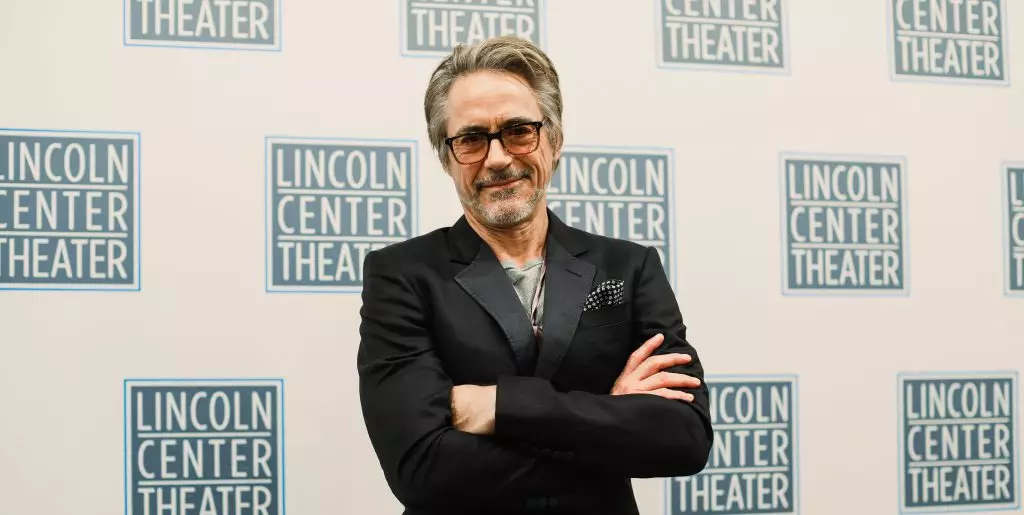Robert Downey Jr., a stalwart figure in the film industry known for his iconic role as Tony Stark, recently shared poignant insights regarding the intersection of artificial intelligence (AI) and celebrity. His reflections arose during an appearance on the podcast “On With Kara Swisher,” where the conversation navigated the evolving landscape of generative AI, one of the most consequential technologies of our time. Downey’s viewpoints not only shed light on his personal philosophy but also reflect broader concerns surrounding the ethical implications of AI in media.
The Personal Touch: Emotion Over Technology
During his interaction with Swisher, Downey emphasized a deeply personal approach to technology. He articulated a clear detachment from the rapid advancements in AI, asserting that his emotional life bears more significance than the capabilities of artificial intelligence. “I feel about it minimally because I have an actual emotional life that’s occurring that doesn’t have a lot of room for that,” he remarked, indicating a prioritization of real human experiences over the digital recreations that AI can potentially offer. This sentiment lays the groundwork for a discussion about how celebrities navigate their identities in an era increasingly dictated by technological innovations.
Another significant aspect of Downey’s discussion involved his views on the preservation of his character’s essence within the Marvel Cinematic Universe (MCU). Despite acknowledging that future executives might be tempted to utilize generative AI to revive characters like Tony Stark, he expressed confidence that the current guardians of these narratives would not exploit his persona in such a manner. “To go back to the MCU, I’m not worried about them hijacking my character’s soul,” he stated, reinforcing the idea that artistic integrity should triumph over commercial motivations.
However, Downey’s humor didn’t hide the underlying seriousness of his assertion—he even went so far as to joke about suing future executives, amplifying the belief that creators should actively safeguard their artistic legacies. By addressing both the benefits and potential risks of AI, he encourages a dialogue on how to ethically utilize technology without compromising individual identities.
The Morality of Technology: A Reflective Investment
Downey’s podcast appearance also brought to light his nuanced relationship with AI from an investment perspective. He articulated a philosophy that extends beyond mere financial involvement. “It always comes down again to not the technology or the opportunity to line my pockets as much as, ‘Who are the people involved with this? Do I think they have a moral psychology?’” This line of thinking highlights the importance of accountability in the tech world. Downey alludes to the moral implications of AI deployment, suggesting that the character and ethics of the people behind these technologies are paramount in determining their value.
His focus on empowerment and knowledge acquisition points to an evolving narrative in which celebrities are not merely victims of technology but active participants. In this balance lies a crucial lesson for other public figures who navigate similar waters.
Transitioning away from the realm of AI, it’s worth noting Downey’s recent foray into the world of theater. He stars in “McNeal,” where he portrays a Nobel Prize-winning novelist who incorporates AI into his creative process. Critiques of the play have been mixed, with some noting that it struggles to engage audiences deeply. Nonetheless, Downey’s performance has garnered praise, showcasing his ability to transcend mediums and explore complex human experiences against the backdrop of modern technology.
This duality—the struggle between technological convenience and the richness of human emotion—is precisely what Downey captures in both his artistic endeavors and his public stances on AI.
As discussions around generative AI continue to dominate conversations in Hollywood and beyond, Robert Downey Jr. stands out as a voice of reason. His reflections weave a tapestry that emphasizes the need for emotional substance in an increasingly digital landscape. By advocating for human integrity over technological convenience, he sets a precedent for future artists and creators navigating the complexities of modern media. Ultimately, Downey’s insights remind us that while technology can be a powerful tool, it must be wielded with respect for the fundamental human experiences that define our existence.


Leave a Reply